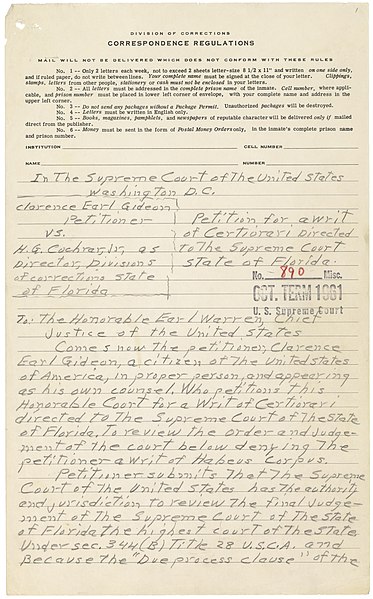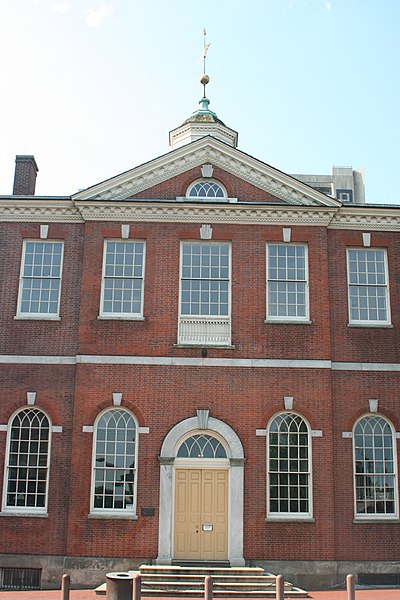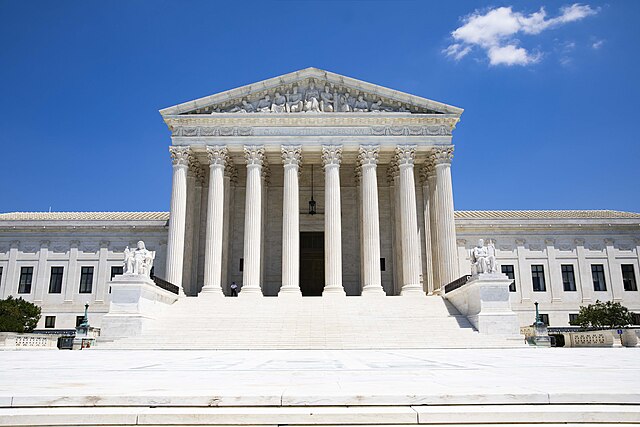Gideon v. Wainwright, 372 U.S. 335 (1963), was a landmark U.S. Supreme Court decision in which the Court ruled that the Sixth Amendment of the U.S. Constitution requires U.S. states to provide attorneys to criminal defendants who are unable to afford their own. The case extended the right to counsel, which had been found under the Fifth and Sixth Amendments to impose requirements on the federal government, by imposing those requirements upon the states as well.
The first page of Gideon's handwritten petition for a writ of certiorari to the US Supreme Court.
Supreme Court of the United States
The Supreme Court of the United States (SCOTUS) is the highest court in the federal judiciary of the United States. It has ultimate appellate jurisdiction over all U.S. federal court cases, and over state court cases that turn on questions of U.S. constitutional or federal law. It also has original jurisdiction over a narrow range of cases, specifically "all Cases affecting Ambassadors, other public Ministers and Consuls, and those in which a State shall be Party." The court holds the power of judicial review: the ability to invalidate a statute for violating a provision of the Constitution. It is also able to strike down presidential directives for violating either the Constitution or statutory law.
The Royal Exchange, New York City, the first meeting place of the Supreme Court
The court lacked its own building until 1935. From 1791 to 1801, it met in Philadelphia's City Hall, before moving to the Capitol Building in Washington, D.C.
John Marshall, chief justice from 1801 to 1835
The U.S. Supreme Court Building, current home of the Supreme Court, which opened in 1935





